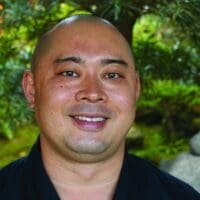Performing funerals is one of the duties of a Zen Buddhist priest, and so they normally must confront death several times each year. Although in today’s world, at least among developed nations, death and aging are isolated from most people’s daily lives, sensing our own aging and death and thus embracing the concept of non-permanency is necessary when we discuss life. Without discussing how we would like to age and die, we are not able to discuss how to live happier and more meaningful lives. Physical death affects us all, and we must accept it. However, there is another form of death, separate from physical death: social death. Social death is what can happen when people lose meaningful connections with others. Social and physical death are not always concurrent and some of us will not even face a social death. But some might face their social death before they face physical death. People become isolated, cut off from the vital network of social connections that sustains the human spirit. How does this happen, and how can it be prevented? This session discusses how compassion toward others and ourselves can influence interpersonal relationships and how that influences social and physical death. Buddhist wisdom tells us that it is important to be present, but it is also necessary to discuss death and what most influences the end of our journeys.

Takafumi Kawakami Osho
Shunkoin Temple
Rev. Rakafumi Kawakami is the deputy head priest of Shunkoin Temple in Kyoto and teaches Zen meditation classes in English to the 5,000 – 5,500 annual visitors to the temple. The … MORE

